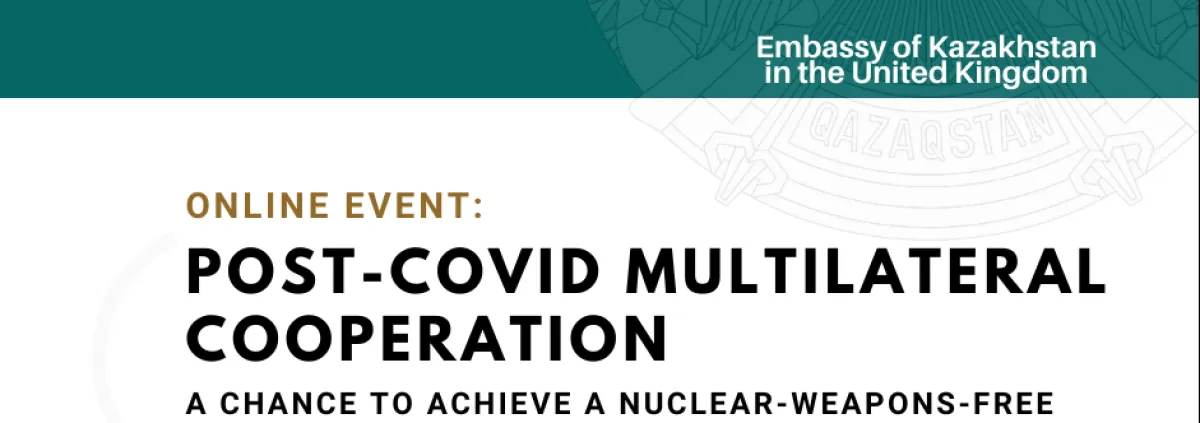he Covid-19 pandemic is testing not only political systems in various countries, but the multilateral system as a whole. Global issues such as “non-proliferation and disarmament” continue to be on the international agenda. The Russell-Einstein Manifesto, highlighting the dangers posed by nuclear weapons, was issued in 1955 and the United Nations marks its 75th anniversary, however world leaders are still called for to seek peace.
The problem is exacerbated by the rise in geopolitical rivalry and a crisis of trust. While some believe that after COVID-19, the world will become even more fragmented, conflict and dangerous, others hope that collective action at the international level will make possible a faster and more peaceful way out of the crisis. The speakers will discuss the role of multilateral cooperation in the context of COVID-19 and beyond.
This session is an opportunity to hear from experts on non-proliferation, disarmament and international cooperation and to join Q&A discussions on perspectives of a nuclear-weapon-free world.
This event, dedicated to the International Day against Nuclear Tests and the 75th anniversary of the United Nations, is hosted by the Centre for International Studies and Diplomacy, SOAS University of London in partnership with the Embassy of Kazakhstan in the United Kingdom.
Speakers:
Yerzhan Ashikbayev
Deputy Minister, Ministry of Foreign Affairs of Kazakhstan
Lassina Zerbo
Executive Secretary, Comprehensive Nuclear-Test-Ban Treaty Organization
Lord Hannay of Chiswick
Co-Chair, All-Party Parliamentary Group on Global Security and Non-Proliferation
Kate Hudson
General Secretary, Campaign for Nuclear Disarmament
Vladimir Shkolnik
Chairman, Pugwash Committee of Kazakhstan
Peter Jenkins
Chairman, British Pugwash Group
more speakers tbc
